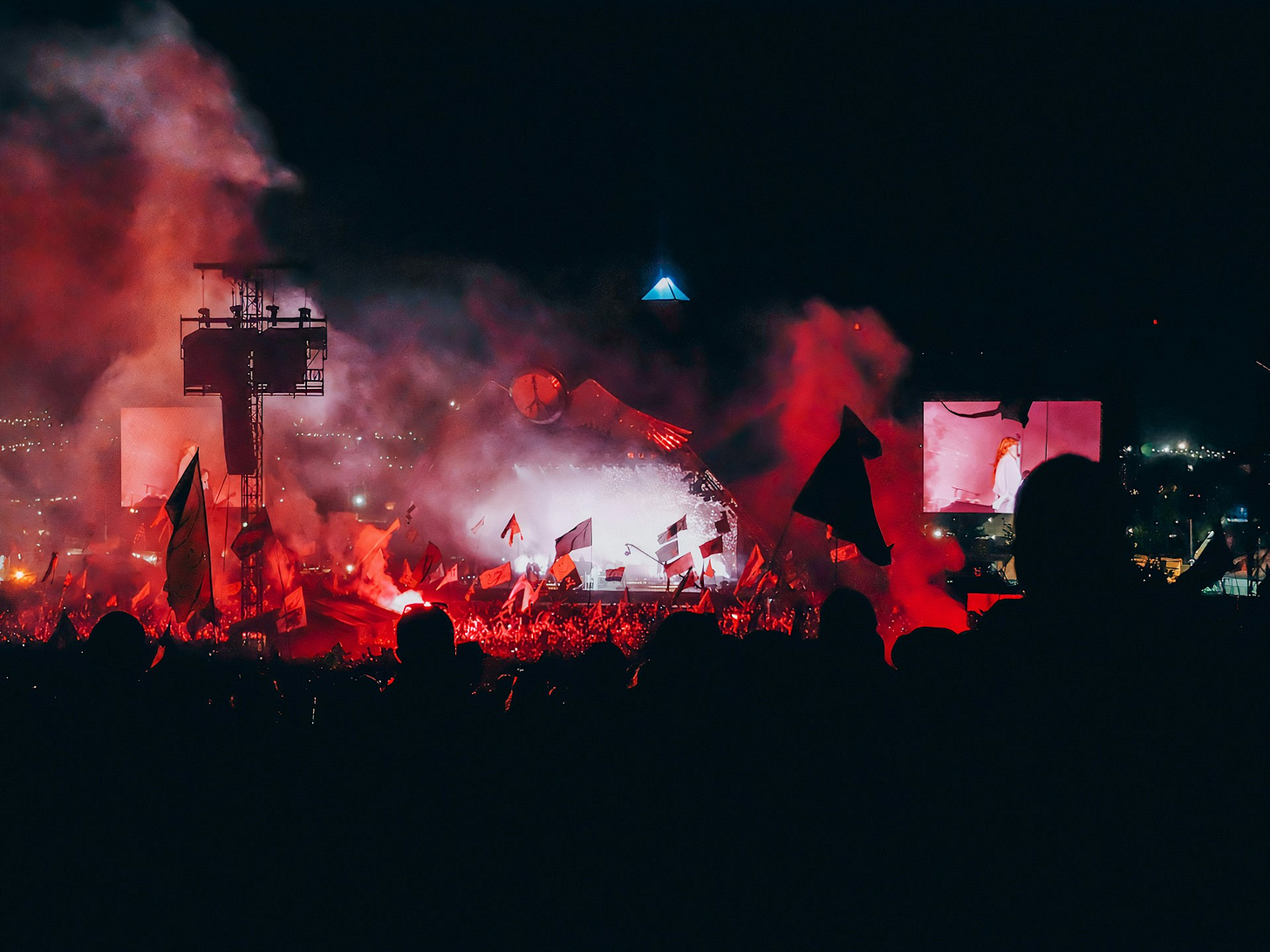When I go to a live show I find myself watching the audience as much as the stage.
It’s an incredible time for live music in London. Dua Lipa, Guns ‘n’ Roses and Linkin Park at Wembley Stadium in the space of a week. Olivia Rodrigo in Hyde Park as the British Summer Time festival kicks off this Friday.
I was lucky enough to catch Massive Attack at Victoria Park a couple of weeks ago. My daughter was back the following weekend to see Charli XCX. On the tube and train home, I was fascinated by all the band t-shirts on display - a post-gig patchwork of loyalty and taste. You could tell who else had been playing big shows in London that night, and who had the more devoted fans. From this entirely unscientific sociological study conducted on the overground it was Sam Fender far and above Beyonce. Maybe his show finished earlier. Maybe her fanbase doesn't live in Surrey.
But the musical epicentre of the UK, maybe even the world this week, isn’t London at all. It’s a farm in Somerset. An evanescent countryside conurbation with a temporary population bigger than Portsmouth or Newcastle-Upon-Tyne. It’s emerging once again. Stitched from campsites, immersive dreamscapes, live music stages, late night utopias and spiritual sanctuaries. And right on cue it’s forecast to rain on Wednesday and Thursday. Of course it is - it’s Glastonbury!

With hundreds of thousands of people on site, and millions watching like me in the comfort of their own homes (thanks BBC), Glastonbury stands as one of Britain’s most celebrated cultural rituals. It’s not just a festival, it’s an act of collective imagination. A manifestation of music, community, creativity and joy. You can see how much it means to the artists who grace the Pyramid Stage and hear their songs sung back at them by a massive throng of happy humans.
And when you are in that Worthy Farm crowd, as I was once for REM and Radiohead, what gets you going is not the act of watching a band perform but that buzz of communion. Yes, it’s exciting to see a great set. But throughout my career I’ve been at hundreds of soundchecks by incredible bands and in my experience it’s not a concert until the audience arrives.
The word ‘concert’ itself is derived from the Latin concentare ‘to sing together’.
As you watch the performances from Glastonbury this week there will be special moments that connect. Some will be personal to you. And some will fizzle with communal electricity, a harmony of emotional empathy and imagination that can translate between audience and stage and even into our living rooms through the TV. It’s a reminder that when people sing, dance and celebrate together, it’s more than entertainment. It’s spiritual. It’s social. It’s human.
This is why I always find myself looking back at the crowd at concerts. I love the humanity of it all. I’m there for the participation, the people watching, the spine-tingling togetherness. Arms around shoulders. Singing skyward. Laughter. Silly dancing. Tears. Music has a way of short-circuiting our egos and hot-wiring our empathy. In every crowd there are tangled stories, generational gaps and overlaps; moods lifted, wounds soothed, strangers becoming tribes. That’s the real show for me.
In a world that feels more fractured than ever. When young people are so often isolated by the illusion of connection. We must cherish these shared, unfiltered moments. We should find more ways to bring the power of music into our lives.
That is why I launched the Practice Makes Purpose campaign - a call for every secondary schools to bring back regular, inclusive singing for all students. Not based on national curriculum, GCSE subject selections or family circumstances. Just one weekly singalong. One group voice, once a week.
Everyone accepts that physical exercise is essential - PE and games continue to age 18. Yet singing in secondary school is seen as optional, extra or embarrassing. When music drops from the curriculum at 13, it's often gone for good. But group music practice is brain training and playtime for our soul. The science shows regular music practice builds neural networks and enhances the soft skills that every employer, child psychologist or policymaker want to see - confidence, attention, emotional intelligence and collaboration. Perhaps most importantly of all, group music practice cultivates something rare and precious: a sense of belonging and a moderated ego. The joy of being part of something bigger than yourself.
Creativity isn’t something we need to teach. Children are born with it. We are wired to explore, imagine, collaborate and play. What we do teach, often unintentionally, is how to stop doing these things. To colour inside the lines. To tick the boxes. To recite the expected answer. A focus on individual measurement and comparison over shared expression.
And when students do choose music, the curriculum and repertoire often bears little resemblance to the musical world they live in. A classical diet that may build discipline, and formal theory knowledge, but rarely builds connection or expressive joy.
Over this 10 week series I’ll explore deeper the loss here: how we’ve overlooked the value of music and creativity, not just in education but in a society on the edge of automation. We’re told to focus on STEM - and yes, those skills matter. But the delicious irony is that the first jobs on the AI chopping block are the coders and software engineers - Meta is laying them off in droves.
I’m all for giving the boring stuff to the robots. But let’s keep the fun stuff for ourselves.
Let Glastonbury’s sky-bound harmonies be our guide. Let’s put down our phones and raise our voices because practice makes purpose.



beautifully written and insightful
call to arms 🙌🏼